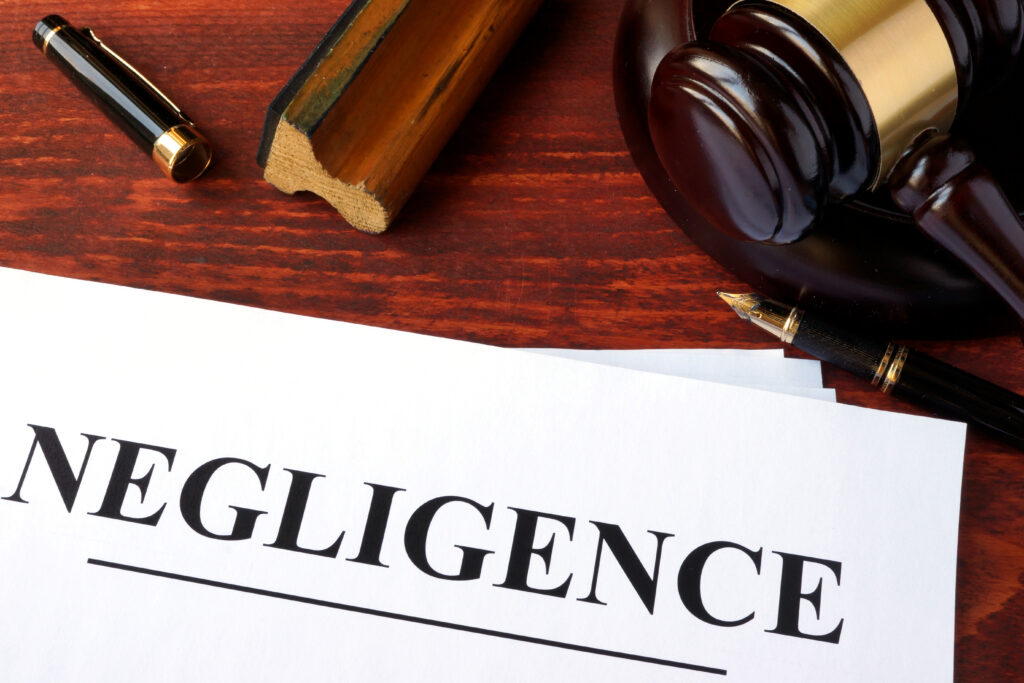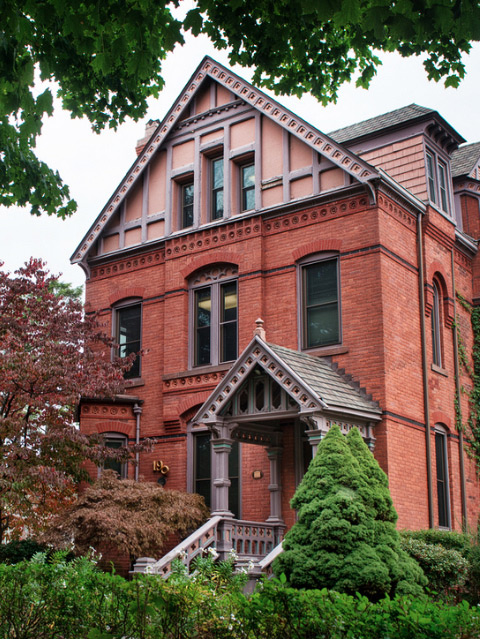If you or a loved one suffered injuries or lost their life because of negligent security, you can file a negligent security lawsuit against liable parties. However, never handle a lawsuit alone. Most people lack the time, knowledge, experience, training, or mental health after an accident to present a winning case.
You can hire a Connecticut negligent security lawyer to fight for the financial recovery you deserve. Your attorney will manage every detail of your case, allowing you to focus on your physical, emotional, and psychological health.
What Does Negligent Security Mean?

Negligent security refers to a property owner’s failure to protect those legally on their property.
You have a reasonable expectation of safety if you are:
- A customer at a retail store
- A patron at an entertainment venue
- A guest at someone’s home
- A pedestrian on public property
- A resident in a rented property
- An employee at their place of business
If you are legally allowed on any property, you may expect security. If the property owner fails to take basic safety measures and you suffer harm because of negligent security, you may sue the liable property owner.
TYPES OF VENUES WHERE SECURITY IS OFTEN NECESSARY
Some types of venues are more susceptible to criminal acts than others.
Properties with significant security needs include:
- Convenience stores
- Retail stores
- Night clubs
- Bars
- Professional athletic arenas
- Concert venues
- Homes
- Apartment complexes
- Amusement parks
Though property owners must evaluate the need for security on a case-by-case basis, common red flags point to substantial security needs:
- Has heavy foot traffic
- Involves the exchange of money, as some violent acts occur as a means for the criminal to get money
- Involves the service of alcohol
- Is in a dangerous neighborhood
- Has a history as the site of one or more violent crimes
- Attracts demographics, such as young people, who may be more likely to commit violent offenses
Inadequate security makes properties and their guests most vulnerable to criminal acts. If an opportunistic criminal sees a building with no apparent security measures, they may see no reason not to commit a criminal act.
WHO IS LEGALLY RESPONSIBLE FOR NEGLIGENT SECURITY?
Property owners are typically responsible for the safety of a property. Therefore, if you suffered injuries or lost a loved one because a property lacked adequate security, the property’s owner may be financially responsible for the harm you’ve suffered.
What Can Happen When Property Owners Don’t Implement Necessary Security Measures
Crime can happen when a property owner fails to install comprehensive security measures.

- Physical assaults and batteries
- Armed robberies
- Unarmed robberies
- Kidnapping
- Sexual assault
- Vehicle theft
- Arson
- Homicide
Aggravated assault is the most common violent crime, but the motivation of the offender ultimately dictates what offense might take place. For instance, if a criminal intends to get money by any means, they may commit armed robbery, not assault—though, in many cases, a criminal does both.
All bets are off when property owners fail to protect their employees and visitors to their property. Criminals may brazenly violate a victim’s safety, knowing that the property owner has not done enough to stop the criminal offense.
Reasonable Steps Property Owners Can Take to Protect Their Guests
Property owners can take several steps to enhance safety and security on their premises. Reasonable measures may include:
HIRING A SECURITY GUARD (OR MULTIPLE SECURITY GUARDS)

Property owners cannot merely lock down their premises to avoid crime. Business owners and residential property owners must allow visitors to enter and exit the property, yet must also ensure the safety of those visitors.
Security guards are dynamic security solutions, as they:
- May deter criminals simply by being present
- Intervene when criminal acts take place, possibly preventing or lessening harm to victims
- Reduce the overall likelihood that someone will suffer physical harm on the property
Security guards may be especially necessary in high-crime areas.
LIGHTING THE ENTIRE PROPERTY ADEQUATELY
Property owners must install and maintain adequate lighting throughout their property.
Effective lighting may reduce the likelihood of violent criminal offenses by:
- Eliminating dark areas where a criminal can lie in wait for a victim
- Shine a light on the face and features of a prospective criminal, which may increase the likelihood that they will be caught (and therefore deter them from committing the offense)
- Allow employees and security guards to see patrons more clearly, which may allow them to recognize criminal behavior as (or before) it takes place
Studies suggest that the features of a property (such as lighting) can affect the likelihood of a violent crime occurring there. Adequate lighting can also lessen the risk of harmful non-criminal events like slip and fall accidents.
INSTALLING SECURITY CAMERAS
Security cameras inside and outside of a property can:
- Give the property owner and their employees a clear view of their entire property
- Alert the property owner to potential criminal acts about to unfold (for example, they may see a person walking towards the business with a ski mask on)
- Capture criminal acts on camera (which may lead to prosecution and deter others from committing crimes on a property)
- Directly prevent crime, as people are generally less willing to commit a crime if they are on camera
Security cameras are a relatively affordable security measure. When property owners take the most basic steps to protect employees and guests, installing security cameras is near the top of the list.
INSTALLING GATES, LOCKS, WINDOW BARS, AND PROTECTIVE BARRIERS
When necessary, a property owner should outfit their premises with sturdy locks, gates, protective bars, barriers for employees to work behind, and other security features. A property owner should also upgrade these security features over time.
Each property is unique, and each owner may have different security concerns. At a convenience store in a bad neighborhood, a business owner may install a bulletproof barrier to protect their cashiers. In a residential neighborhood, a passcode-protected gate may help prevent criminals from entering and committing crimes.
Regardless of the details of such security measures, a property owner must do everything possible to protect those on their property.
Factors a Property Owner Must Consider When Creating a Security Plan
As a property owner determines what security measures are (or aren’t) necessary for their specific property, they should consider:
THE GENERAL SAFETY OF THE NEIGHBORHOOD
Government data suggests that violent crime occurs most often in concentrated neighborhoods known as hot spots.
It is a property owner’s duty to know how safe a neighborhood is. While they do not need to know formal statistics about crime in the area, they must understand whether those on their property face a credible threat of danger.
THE HOURS THAT THE PROPERTY OPERATES
Properties with nighttime operations may be at a heightened risk for criminal offenses.
This includes:
- Bars
- Clubs
- Lounges
- Restaurants
- Amusement parks
- Stores
Violent crime tends to happen most around 10 p.m., though a violent offense can happen anytime. A property owner may consider hiring a nighttime security guard, installing flood lighting, and taking other measures to combat the risk of nighttime crime.
THE EXPERIENCES OF OTHER PROPERTY OWNERS IN THE AREA
Whether or not a property owner is new to an area, they may speak with neighboring property owners to:
- Find out about the relative safety of the neighborhood
- Hear any specific stories detailing criminal acts in the neighborhood
- Ask the other property owners whether they believe security measures are necessary, and if so, which measures to take
A property owner cannot bury their head in the sand regarding the safety of a neighborhood. They should look up local crime figures, weigh the experiences of other property owners in the area, and use common sense.
If a property owner fails to honor their duty of care and you suffer harm, a premises liability lawyer will demand fair compensation from liable parties.
How a Victim of Negligent Security Can Pursue Justice
You do not have to seek a financial recovery on your own. A premises liability lawyer will draft, file, and resolve your negligent security lawsuit.
Your lawyer may file an insurance claim with a property owner’s insurer. They may instead file a lawsuit on your behalf. Each case has unique considerations, and your attorney will create a customized strategy for you.
How Premises Liability Lawyers Seek Compensation for Their Clients
A premises liability lawyer will oversee every step in your lawsuit or insurance claim, including:
IDENTIFYING NEGLIGENCE BY A PROPERTY OWNER
Your attorney will detail every form of negligence that caused you to suffer injuries or lose a loved one.
Your attorney and their team may:
- Visit the property where you suffered an injury
- Photograph and video record areas of the property that indicate the property owner’s negligence
- Interview witnesses
- Hire experts to testify about the property owner’s negligent security
- Secure and organize all evidence in a logical manner
Premises liability lawyers typically have paralegals to help secure and organize case-related evidence.
DETAILING YOUR DAMAGES
Your attorney will seek proof of each of your damages.
Such proof may include:
- Images of your injuries (both photographs and internal images, like X-rays and CT scans)
- Proof that you have missed work and lost income as a consequence
- Expert testimony about your injuries, mental health struggles, and other damages
- Medical bills
Your lawyer will enter settlement negotiations with as much documentation of your damages as possible.
CALCULATING A FAIR SETTLEMENT VALUE
Premises liability lawyers calculate their clients’ damages.
This includes:
- Economic damages, which have a clear economic cost (think: lost income and medical bills)
- Non-economic damages, which do not have such an obvious financial cost (think: pain and suffering)
Your lawyer will also consider any damages you will experience in the future.
FIGHTING FOR YOUR SETTLEMENT
When you hire a lawyer, you also hire a negotiator. Your attorney will take on insurers, civil defense lawyers, and anyone else with the authority to pay you.
GOING TO TRIAL, IF NECESSARY
Most negligent security lawsuits result in settlements, not jury verdicts. Still, your attorney should not hesitate to take your case to court if an insurer refuses a fair settlement. A trial can take longer than a settlement, but it can recover the compensation you deserve.
What Damages Should a Victim of Negligent Security Receive Money For?
Victims may suffer physical injuries, emotional anguish, and psychological distress when a harmful event happens because of inadequate security.
Some of the more specific damages in a negligent security case may include:
- Medical bills
- Disability-related damages (such as caregiver costs and home upgrades)
- Pain and suffering
- Mental health treatment
- Lost income
- Diminished earning power
- Property costs (such as replacing a cell phone damaged during a physical altercation)
If your loved one passed away from injuries they suffered on an unsafe property, a wrongful death attorney can seek justice for you and your loved ones.
Recoverable damages may include:
- Funeral and burial costs
- Loss of the decedent’s companionship, guidance, and other non-economic benefits
- Loss of the decedent’s income, household services, and other economic contributions
- Grief counseling
- The pain and suffering of all parties affected by the tragic passing
Let a qualified lawyer identify and value your damages. Just focus on your health and recovery.
Hire Your Premises Liability Attorney as Soon as Possible
Do not wait to hire a lawyer; they may face a non-negotiable filing deadline. Research personal injury attorney in your area and hire the firm you are most comfortable with.
